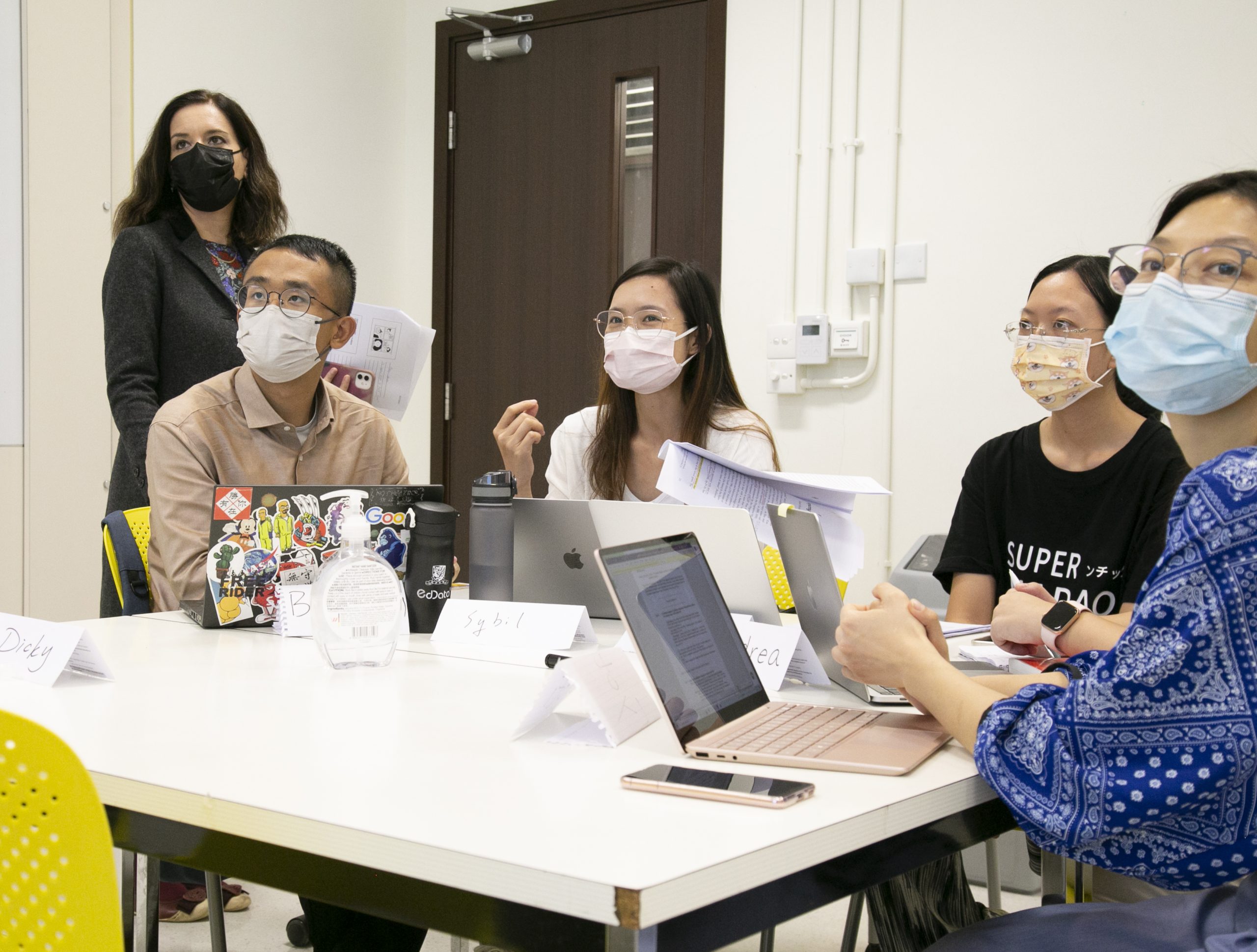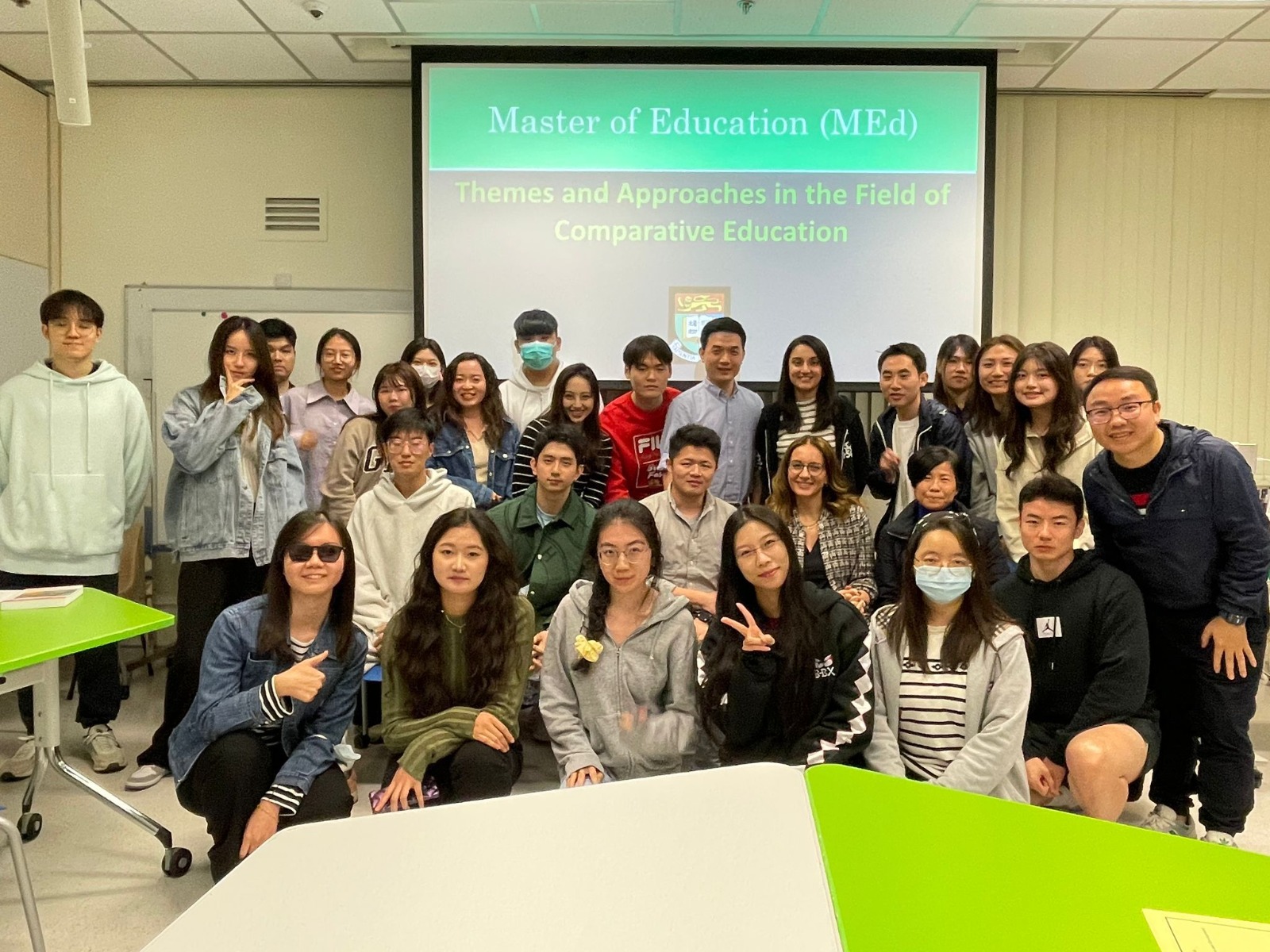2021-2022 CGSED Cohort
Comparison is a fundamental tool for all forms of enquiry. When applied to education in an international setting, it assists in identifying factors which shape education systems, processes and outcomes, and instruments for improvement of those systems, processes and outcomes.
The comparisons in this specialist programme are framed by theories and understandings of globalisation. These forces bring benefits for many people, but can also have negative dimensions. The specialist modules will examine experiences through the lens of globalisation, identifying forces of continuity and change and the implications for educators.vSpecialist modules also focus on the nature of development in an international context and the role of education in processes of development. This includes analysis from early childhood to higher education, and nonformal education. It will include reference to UNESCO’s evolving Education for All and the Millennium Development Goals.
The set of specialist modules also include focus on reform, providing conceptual explanations for what works (and does not work) in different settings and at different periods in history. East Asia provides an instructive arena for such comparison, but the module will also analyse experiences and patterns in other parts of the world.
Who would benefit from this specialism?
- Educators with an interest in comparative education and international educational development in an increasingly globalized world
- Persons with undergraduate degrees in related themes who are keen to study more deeply the links between education and development
- Future or current development workers (NGOs, international organisations, etc.) with an interest in education and capacity building
Participants will:
- develop understandings of the nature of education systems, processes and outcomes in an international context
- develop critical perspectives on the field that are integrated, consistent, and morally and practically defensible
- gain awareness of the levers for change in international contexts, and on the constraints faced by a range of actors
Mode of study: 2-years part-time or 1-year full-time
Module 1: Themes and approaches in the field of comparative education
This module will introduce students to the history and nature of comparative education as a field of enquiry. It will note principal dimensions of the field as conventionally defined in the literature on the topic, and will consider some variations in emphasis in scholarly communities and other actors in different parts of the world. The module will also consider the nature and contents of some key vehicles for publishing comparative education research, including journals, books and reports by international agencies. The module will conclude with an overview of the nature and directions of the field.
Module 2: Addressing the global-local nexus in education
This module will develop students’ understandings of local and global education policies and practices. Adopting a ‘glocalisation’ perspective, it will stress a new localism that stands as resistance against globalisation and rootlessness to reclaim the significance of the local in the global age. Drawing on local experiences and phenomena as a source of learning, this module will introduce students to an understanding of education that is conscious of local places to enable them to be inducted into the knowledge and patterns of behaviour associated with responsible community engagement.
Module 3: Education for sustainable development
This module examines education for sustainable development from a comparative perspective. The course raises the question what sustainable development means within economic, environmental, and social and cultural domains, and traces the history of the concept. In Hong Kong and other high-income societies, education for sustainable development is often related to environmental education; but in low-income contexts (especially in Africa and Asia) it also commonly refers to education that meets local social needs and is supported at the local level.
Students in this module contribute to the online Encyclopedia of Education for Sustainable Development.
Module 4: Critical issues in educational reform
This module will enable students to employ theoretical perspectives and empirical research findings to understand critical issues in contemporary educational reform in East Asia and elsewhere. The module will address the nature and evolution of globalization as a key context in which contemporary educational reform takes place. Identifying links between globalization and educational reform, the module will provide a set of cases for developing students’ understanding and knowledge of educational reform from a comparative perspective.
Click here for more information on the MEd as a whole.


















